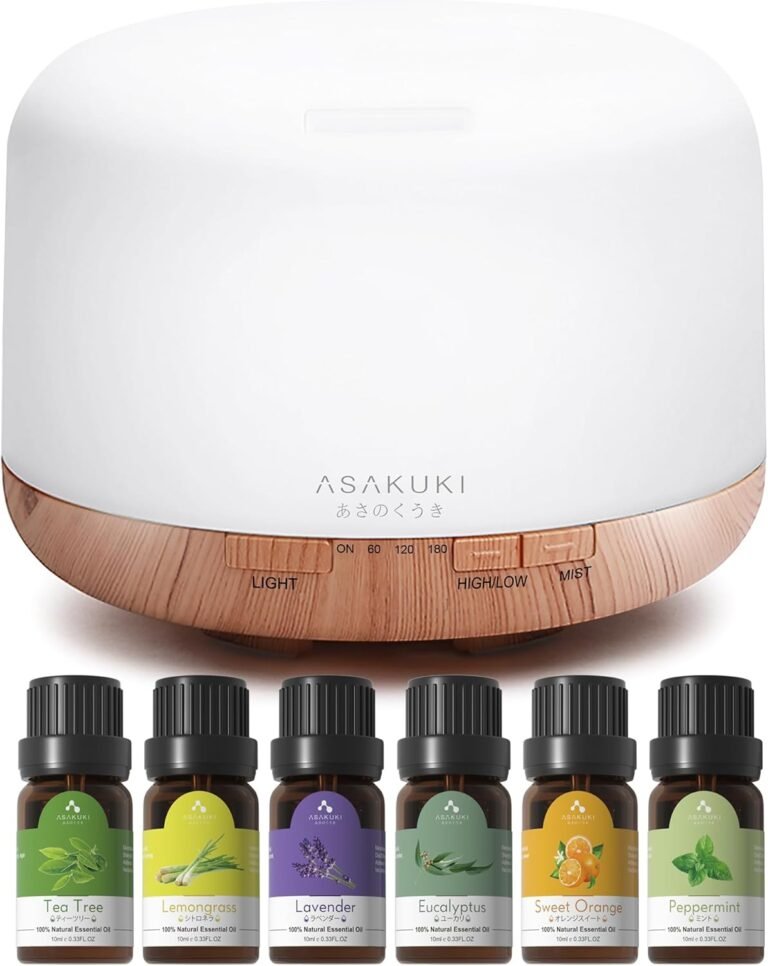Sleeping Like a River—Ever wish you could sleep as easily as a gentle river flows—steady, natural, and deeply refreshing? Many people toss and turn at night, unable to find that deep, restorative rest their bodies crave. Disrupted routines, racing thoughts, and blue-light screens can make getting better sleep feel out of reach. The good news is that small changes in your nightly habits can bring powerful relief.
Simple bedtime rituals set the stage for effortless, peaceful sleep. With the right approach, you’ll build habits that encourage calm, help you unwind, and support your mind and body. Healthy sleep routines don’t just leave you feeling rested—they boost mood, sharpen focus, and support long-term well-being. Explore these insights on Improving Mental Acuity Through Sleep for more tips on how quality sleep sharpens your thinking.
Ready to discover better sleep tonight? Don’t miss our recommended YouTube video for practical bedtime strategies to help you sleep deeper and wake up recharged. Watch Now
Understanding Why Deep Sleep Matters – Better Sleep
Deep sleep acts as your body’s nightly reset button. This stage doesn’t just help you feel refreshed—it supports emotional strength, sharp thinking, and daily energy. While you might believe any rest is good, the depth and quality of your sleep play a much bigger role than you might imagine. Getting better sleep sets the stage for a clear mind, a healthier body, and greater resilience to everyday stress.
 Photo by Niels from Slaapwijsheid.nl
Photo by Niels from Slaapwijsheid.nl
How Deep Sleep Fuels Your Mind
While your body rests, deep sleep works behind the scenes to organize and strengthen your brain. This phase, sometimes called “slow-wave sleep,” repairs memory, boosts learning, and clears mental clutter. It’s like spring cleaning for your mind.
Key benefits of deep sleep for mental and emotional health:
- Sharpens memory and learning: Your brain files new information so you can recall it later.
- Improves mood: Deep sleep helps regulate emotions and stress, reducing those groggy or anxious mornings.
- Supports mental clarity: With enough deep rest, you’re more likely to stay focused and process thoughts smoothly.
Research shows that this stage may even help clear toxins from the brain, which could lower the risk of memory issues over time. For more on how sleep stages impact memory and brain health, visit The Deep Clean of Deep Sleep.
The Physical Power of Deep Sleep
Deep sleep gives your body a chance to heal and recharge. This is when tissue repair happens, muscles grow, and your immune system gets a needed boost. Missing out on this stage weakens defenses and makes recovering from stress or illness harder.
Here’s what your body does during deep sleep:
- Rebuilds muscles and tissues
- Restores energy reserves
- Releases growth hormones
- Strengthens the immune system
Sleeping deeply just a few nights each week can cut your chance of getting sick and help you bounce back after workouts or injuries. According to Sleep: What It Is, Why It’s Important, Stages, REM & NREM, your body uses deep sleep to repair injuries and build strength for tomorrow.
What Happens When Sleep Runs Shallow?
Without enough deep sleep, you’ll feel it—mentally, emotionally, and physically. The effects may sneak up on you, such as forgetfulness, irritability, or nagging fatigue. But over time, the risks grow.
Consequences of poor sleep include:
- Trouble focusing or remembering things
- Low or unstable mood
- Weakened immune system
- Greater chance of weight gain, diabetes, and heart problems
Long-term sleep loss is tied to ongoing health problems. The National Institutes of Health notes that insufficient sleep can increase your risk for chronic illnesses and lower your ability to react and think clearly (read more in Sleep Deprivation and Deficiency – How Sleep Affects Your Health). If you want to dig deeper into managing fatigue from sleep struggles, don’t miss these natural ways to battle chronic fatigue—using holistic methods.
Prioritizing deep sleep means more than just avoiding tiredness—it lays the groundwork for better sleep, stronger health, and a brighter mind every day.
Creating a Flowing Bedtime Routine – Better Sleep
Just as a river flows gently and steadily, your bedtime routine can help you drift into better sleep calmly and confidently. Building nightly rituals isn’t about strict rules—it’s about inviting peace and signaling to your brain that it’s time to let go. With a few mindful practices and simple environmental tweaks, your evenings can run smoothly and restfully, washing stress away for deep, restorative sleep.
Mindful Transitions: Effective Wind-Down Strategies
Letting your mind and body settle before bed is vital for better sleep. Mindful transitions create a buffer between your busy day and the restorative calm of night. Here are practical ways to slow down and welcome rest:
- Gentle yoga: Calming stretches or short routines help relieve built-up muscle tension.
- Meditation: Close your eyes, breathe deeply, and notice each breath. This will center your mind and ease stress.
- Deep breathing: To soothe your nervous system, try slow, intentional breaths—in through the nose, out through the mouth.
- Journaling: Write down thoughts, gratitude, or a to-do list for tomorrow to clear mental clutter.
Mix and match these practices. Even ten minutes of intentional winding down can lead to a smoother transition into sleep. Explore these holistic self-care rituals for a deeper look at nurturing holistic habits in your evening routine. For expert advice on mindfulness techniques at bedtime, visit The Ultimate Guide to Mindfulness for Sleep.
Setting the Stage: Optimizing Your Sleep Environment
Setting up your sleep space is like preparing a cozy nest. The goal: an atmosphere that feels safe, uncluttered, and inviting. Consider these elements for a better sleep environment:
 Photo by Ron Lach
Photo by Ron Lach
- Lighting: Dim lights an hour before sleep. Use warm bulbs or salt lamps to avoid harsh or blue light.
- Temperature: Cooler rooms (about 65°F/18°C) signal your body to rest.
- Tidy spaces: A clutter-free and made bed cues your brain to unwind.
- Quiet and comfort: Use soft blankets, blackout curtains, and white noise if helpful.
A few tweaks go a long way—replace bright digital clocks with analog, put away laundry, or add calming scents like lavender. For more actionable strategies, check out these research-backed bedroom environment tips and sleep-friendly bedroom ideas.
Decoding Evening Habits: What to Avoid Before Bed
Some habits seem harmless but can disrupt a river-like flow into sleep. Avoid these common pitfalls for better sleep:
- Screens: The blue light from phones, tablets, and TVs confuses your brain’s sleep signals—power down at least 30 minutes before bed.
- Caffeine and late-night snacks: Coffee, tea, chocolate, and big meals can keep you tossing and turning. Try herbal teas and finish meals two hours before sleep.
- Alcohol: It may make you sleepy, but it disrupts sleep cycles later at night.
- Stressful tasks: Arguments, worrying, or last-minute emails increase mental alertness.
Instead, pick gentle routines—read a book, sip chamomile tea, or listen to calming music. For a full rundown of what to skip before bedtime, see this list of 20 Things You Shouldn’t Do Before Bed and suggestions on foods to avoid before sleep.
Choosing mindful rituals and arranging your bedroom like a tranquil riverbed can make falling asleep easy and natural. Over time, these consistent steps will cue your mind and body to settle, helping you enjoy a deeper, more restful night, every night.
The Role of Nutrition in Deep Rest
What we eat shapes how well we sleep. Nutrition doesn’t just fill our bellies—it’s a powerful tool for supporting deep, restful nights. Good food choices calm the mind, relax the body, and supply natural chemicals (like melatonin and serotonin) that nudge us into better sleep. Let’s explore how what you put on your plate can help you sleep like a river: smooth, steady, and deeply restorative.
Better Sleep: Foods That Support a Calm Mind and Restful Body
Some foods naturally guide the body and brain into a relaxed, ready-for-sleep state. They’re rich in nutrients that help trigger the body’s rest response and provide the building blocks for feel-good brain chemicals. Add these foods to your evening lineup if you’re looking to wind down more easily:
 Photo by Pragyan Bezbaruah
Photo by Pragyan Bezbaruah
- Magnesium-rich foods: Almonds, pumpkin seeds, spinach, and avocado soothe the nervous system, easing restless thoughts.
- Tryptophan-containing foods: Turkey, eggs, yogurt, and seeds offer this amino acid, essential for producing sleep-supporting serotonin and melatonin.
- Healthy fats: Walnuts, fatty fish (like salmon), and flaxseeds provide omega-3s that help regulate sleep hormones and reduce inflammation.
- Carbohydrate partners: Bananas, kiwis, and whole grains pair well with proteins to boost tryptophan uptake, speeding up the journey to deep rest.
- Natural sleep inducers: Cherries and tart cherry juice are natural sources of melatonin, perfect as an evening treat.
The Mediterranean diet stands out as a nourishing approach to better sleep. It’s packed with beneficial foods—think fresh vegetables, nuts, olive oil, and fish—all linked to easier, deeper sleep. Check out these Tips for a Healthier Lifestyle with the Mediterranean Diet for practical meal ideas and a science-backed plan.
For more details and research findings on foods that help you sleep, see this expert-backed list: The Best Foods To Help You Sleep.
Evening Nourishment: When and What to Eat for Sleep
The timing and type of evening meals shape how easily you relax into sleep. Eating the right foods at the right times gives your digestive system a break and lets your body focus on deep restoration, not late-night metabolism.
Here’s how to set the stage for better sleep with your evening routine:
- Enjoy your last big meal at least 2-3 hours before bed. This gives your body time to digest and avoids that heavy, unsettled feeling.
- If hunger strikes within an hour of bed, choose light, balanced snacks. Small servings of nuts, a banana with nut butter, or Greek yogurt with honey pair protein and carbohydrates to gently boost serotonin.
- Avoid spicy and fatty foods late at night. These can cause heartburn or indigestion, making sleep more challenging to come by.
- Skip caffeine and sugary snacks in the evening. These can steal sleep by ramping up alertness or causing energy crashes.
For more helpful tips on what to eat (and when) to sleep better, dive into this practical guide: Is It Bad to Eat Before Bed?. Looking for snack inspiration? Choose from nutrient-rich options like walnuts, seeds, and whole-grain toast, as outlined in Healthy Bedtime Snacks to Eat Before Sleep.
Simple adjustments in what and when you eat—along with paying attention to your body’s cues—can flip the switch for deep, restorative rest. Try experimenting with your diet, noting which foods help you wake up feeling refreshed and ready for the day.
Natural Rhythms: Light, Sun, and Sleep Cycles
Our bodies operate on a natural schedule called the circadian rhythm—a 24-hour internal clock that governs when we feel alert and when it’s time for rest. Light has the strongest influence on this rhythm. Syncing up with the sun’s daily cycles is a powerful way to get better sleep, leaving you refreshed and alert in the mornings and peacefully drowsy at night.
Understanding and respecting your body’s connection to daylight and darkness can improve your sleep routine. Let’s examine practical ways to use light’s natural cues for deep, restorative rest.
The Power of Morning Sunlight for Better Sleep
 Photo by Ihsan Adityawarman
Photo by Ihsan Adityawarman
Getting outside in the morning doesn’t just feel nice—it’s essential for resetting your body clock. When sunlight hits your eyes soon after you wake up, it tells your brain it’s daytime. This triggers a drop in melatonin (the hormone that keeps you sleepy) and gets your body making hormones that boost your energy and mood.
What’s more, morning sunlight helps anchor your circadian rhythm. This means you’ll feel more awake throughout the day and begin to feel sleepy at the right time each night.
Key reasons why morning sunlight matters for better sleep:
- It increases your alertness naturally.
- It sets the timing for melatonin rising at night, helping you sleep more deeply.
- Exposure to morning light is linked to improved mental health and emotional balance.
Make it a daily ritual to step outside or sit by a sunny window for 10–20 minutes after waking. Let your skin and eyes soak in the light (no sunglasses, if possible). This small habit can outsize your ability to fall asleep and stay asleep when night falls. Check out these morning sunlight benefits for a deeper look into the science and daily impact.
Better Sleep: Managing Nighttime Light for a Smoother Sleep Flow
Artificial light, especially blue light from screens and bright bulbs, tells your brain to stay alert. This can confuse your internal clock at night and keep you from winding down naturally. That’s why managing your evening light exposure is one of the easiest ways to improve your sleep—and it doesn’t take much effort.
Simple ways to make your nights more sleep-friendly:
- Switch to warm, dim lights an hour before bed.
- Use lamps with amber bulbs or salt lamps instead of overhead lighting.
- Avoid screen time for at least 30–60 minutes before getting under the covers.
If you must use devices in the evening, try blue-light blocking glasses or enable “night shift” and “dark mode” features. Replace your nightly TV habit with a book, soft music, or calming activities in low light. According to extensive research, reducing blue light in the evening helps align your circadian rhythm, making it easier to get consistent, better sleep (Effects of light on human circadian rhythms, sleep and mood).
If sleeplessness continues despite these changes, addressing your habits around light may reveal hidden sources of disruption. You can also tap into the wisdom of ancient health for more strategies that respect nature’s cycles.
By syncing your routine with the sun’s rhythms—soaking in morning light, and winding down in evening darkness—you support your body’s most profound craving: natural, consistent, and restorative sleep.
Conclusion
Simple bedtime rituals can change how you fall asleep and how refreshed you feel in the morning. Whether turning down lights, choosing the right snacks, or adding short mindfulness practices, each small habit works with your body’s natural rhythms to support better sleep. Let these changes be flexible—experiment to find which habits help you drift off smoothly, like a quiet river at night.
Building a steady sleep routine delivers deeper rest, brighter days, and stronger health overall. These gains go beyond feeling less tired; they lift mood, sharpen memory, and even help with long-term well-being. See practical ideas in Finding Balance and Wholeness through Mind, Body, and Soul for more ways to sync healthy habits and sleep with your daily routine.
Watch our recommended YouTube video for extra tips on powerful bedtime strategies. What rituals help you reach deep rest? Share your thoughts or your bedtime routine below—your experience could help others struggling to get better sleep. Thank you for reading and being part of this restful, supportive community.





